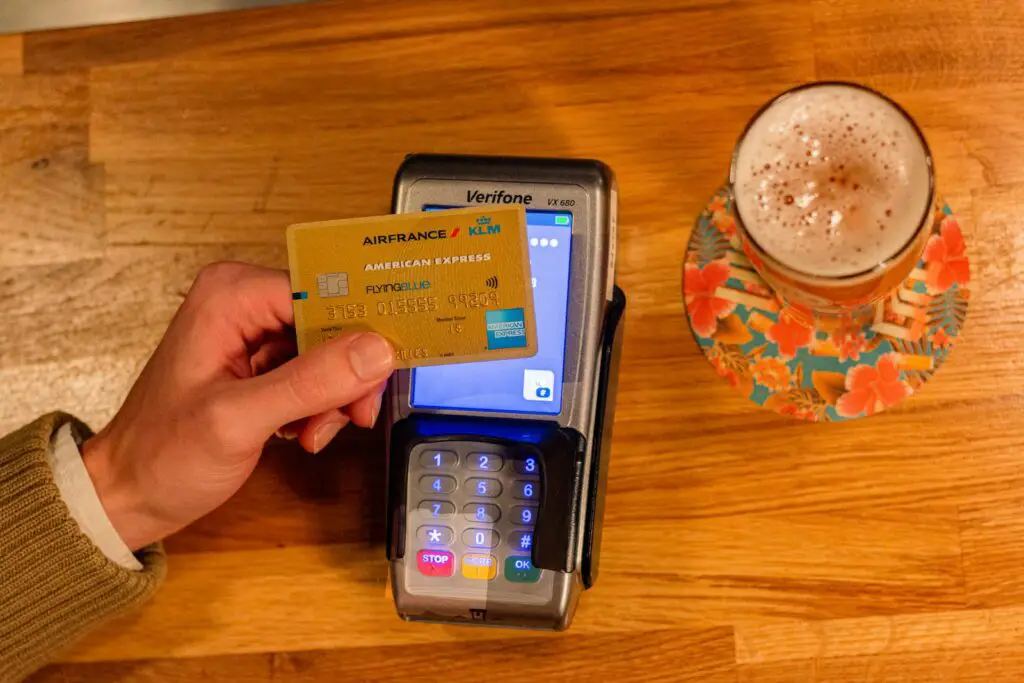In an era increasingly dominated by gig work finances, traditional employment has begun to share the stage with a booming gig economy. Imagine a vibrant tapestry woven by freelancers, consultants, and side-hustlers, each stroke contributing to their unique financial portraits. As the foundation of work evolves, it becomes imperative for these contemporary workers to leverage the advancements in financial technology.
Navigating this tumultuous sea of ever-changing income requires a sturdy financial compass. Gig workers often face the daunting task of managing irregular earnings, separating business expenses, and ensuring prompt payment. Here, digital tools become the lighthouse guiding them toward financial stability.
This article sets sail into the vast ocean of financial tools designed for those braving the gig economy. From budgeting apps tailored for inconsistent income to intelligent payment platforms, we explore how gig workers can fortify their financial security and overcome the unique challenges of their freeform professional lives.
Overview of the Gig Economy and the Rise of Gig Workers
The gig economy, characterized by short-term contracts and freelance work as opposed to permanent jobs, has revolutionized the modern labor market. The paradigm shift from traditional employment to the flexibility of gig work has attracted a diverse workforce seeking autonomy and varied income streams. Gig workers—individuals who earn their livelihood by providing services through gig platforms or digital marketplaces—embrace this emergent trend, which stands as a significant source of income for many.
The influx of digital platforms has simplified the connection between gig workers and clientele, leading to a robust online platform ecosystem that caters to a wide array of services. This burgeoning sector ranges from ride-sharing to freelance programming, empowering workers to select gigs that align with their skills and schedules.
| Year | Percentage Increase in Gig Workers |
|---|---|
| 2015 | 8.1% |
| 2016 | 9.6% |
| 2017 | 11.4% |
| 2018 | 13.3% |
Despite the freedom and opportunities presented by gig work, managing gig work finances remains one of the biggest challenges. An irregular income, often bereft of traditional employees’ benefits like Social Security or retirement plans, necessitates savvy financial management to ensure financial security and meet essential expenses.
Financial Tools for Gig Workers
Navigating the terrain of gig work finances demands a robust toolset. Digital financial tools play a critical role in providing gig workers with the framework to manage fluctuating income, track expenses, and process payments. These tools comprise of budgeting apps, expense tracking software, and payment processing platforms, among others, acting as financial lifeboats ensuring stability in the uncertain waters of the gig economy. Leveraging these tools allows gig workers to create a semblance of the financial structure that traditional employment offers, helping them plan for taxes, save for an emergency fund, and maintain personal finances with greater precision.

Importance of Financial Tools for Gig Workers
Financial tools serve as pillars for gig workers to construct a stable financial future. Their significance is threefold:
- Income Management: With earnings that can vary widely from month to month, gig workers must have clear real-time insights into their cash flow to make informed financial decisions.
- Expense Oversight: Identifying tax-deductible business expenses and keeping personal spending in check is vital for maximizing income and reducing tax liabilities.
- Future Planning: Without the safety net of employer-sponsored benefits, gig workers must proactively plan for retirement, disability insurance, and other future financial needs.
The right set of digital tools can transform the financial challenges of the gig economy into opportunities for growth and financial security.
Budgeting Apps for Managing Irregular Income
Budgeting apps are indispensable for gig workers battling irregular income. These apps provide an in-depth look at income trends, enabling users to forecast earnings and plan for leaner periods. Here’s a look at some budgeting apps tailored for gig work finances:
| Budgeting App | Features |
|---|---|
| YNAB (You Need A Budget) | Personalized budgeting, debt tracking, goal management |
| Mint | Automated expense categorization, bill payment reminders |
| PocketGuard | Bank account linking, “In My Pocket” feature for spendable balance |
| QuickBooks Self-Employed | Tax categorization, mileage tracking, estimate future profit |
By setting budgets and tracking progress, these apps bolster financial confidence despite the unpredictability of gig work.
Expense Tracking Tools for Business Expenses
Keeping a meticulous record of business expenses is non-negotiable for gig workers. Expense tracking tools simplify this process, offering features that help categorize and monitor spending. Some top tools include:
- Expensify: Ideal for on-the-go receipt tracking, offering real-time expense reports.
- FreshBooks: Geared towards small business owners, providing invoicing alongside expense tracking.
- Wave: A free tool that delivers income and expense tracking with an intuitive interface.
Used effectively, these tools not only ease tax season headaches but also provide valuable insights into cost-saving opportunities.
Payment Processing Platforms for Ease of Receiving Payments
Gig workers are tasked with not only earning their income but also ensuring they receive it efficiently. Payment processing platforms are pivotal in achieving a smooth payment process. Here’s a glance at some popular platforms:
- PayPal: A widely accepted payment method, featuring invoicing and immediate fund transfers.
- Stripe: Favored for its robust API and e-commerce integration, allowing for custom payment solutions.
- Square: Known for its mobile point of sale (POS) capabilities, also includes invoicing and online sales facilities.
These platforms often act as the bridge between gig work and financial stability, providing a reliable method to funnel earnings into one’s financial ecosystem.
Personal Finances and Financial Security
In the gig economy, managing personal finances goes beyond the basics of saving and spending. It’s about ensuring financial security amidst a fluctuation of earnings. Gig workers face unique challenges—without the consistent paychecks associated with traditional employment, they must meticulously plan their financial life to maintain stability.
Understanding the Importance of Financial Security for Gig Workers
Financial security for gig workers is akin to a safety net on a high wire—it’s essential for peace of mind and sustainability. Without the cushion of a regular income, gig workers have to be self-sufficient in managing their funds. This is achieved by:
- Creating a Financial Buffer: Building a reserve to safeguard against income variability.
- Diversification: Establishing multiple income streams to reduce dependence on a single source.
- Strict Budgeting: Utilizing digital tools to keep spending within the bounds of fluctuating earnings.
Achieving financial security means being able to weather the feast-or-famine nature of gig work without compromising quality of life.

Building an Emergency Fund for Financial Stability
An emergency fund is a financial lifeline during unforeseen circumstances. Here’s how gig workers can build theirs:
- Determine Your Essential Expenses: Calculate your monthly living costs to understand the bare minimum required to survive.
- Set a Target: Aim for a fund that covers 3-6 months of essential expenses.
- Save Consistently: Direct a portion of every payment into this fund, treating it like a non-negotiable expense.
| Emergency Fund Tips | Description |
|---|---|
| Automatic Transfers | Set up auto-savings to ensure you contribute regularly. |
| High-Yield Accounts | Utilize a high-yield savings account to grow your fund. |
| Expense Reassessment | Trim non-essential expenses to boost your saving rate. |
Considering Disability Insurance for Income Protection
Disability insurance is often overlooked, yet it’s a crucial element for anyone relying on their ability to work. It ensures continued financial inflow during periods of short-term or long-term disability. Considerations include:
- Coverage Scope: Understand what scenarios are covered and the benefit amounts.
- Policy Costs: Compare premiums and decide what’s affordable based on your income.
- Waiting Period: Be aware of the policy waiting period before benefits begin.
By acquiring disability insurance, gig workers protect themselves against income disruption due to health issues.
Exploring Retirement Plans and Social Security Options for Long-Term Financial Security
Planning for retirement as a gig worker requires proactive effort. Traditional employees often benefit from employer-backed retirement plans, but gig workers must set these up independently. They may consider:
- Individual Retirement Accounts (IRAs): Regular contributions can lead to significant savings over time.
- Self-Employed Pension Plans (SEP): A SEP IRA allows for higher contribution limits, suitable for those with higher earnings.
- Social Security: Gig workers still pay into Social Security through self-employment tax, so understanding benefit entitlements is crucial.
Planning retirement contributions and understanding your rights to Social Security benefits are fundamental steps in securing long-term financial well-being.
Achieving personal finances and financial security in gig work requires strategic thinking and utilization of digital tools. It’s about grounding the unpredictable nature of gig work with smart financial practices and support systems that foster a stable and secure professional life.
Navigating Gig Work Finances: Overcoming Challenges and Implementing Solutions
Navigating finances as a gig worker often feels like sailing in unpredictable weather—calm seas can quickly turn turbulent. One of the biggest challenges is dealing with irregular income streams, which can complicate everything from paying bills to planning for retirement. Here are some solutions to help gig workers manage their financial waters more smoothly:
| Challenge | Solution |
|---|---|
| Unpredictable Income | Set a strict budget using Budgeting apps. |
| Multiple Income Streams | Diversify work to ensure continuous cash flow. |
| Business Expenses | Track and deduct expenses to reduce tax liability. |
| Emergency Situations | Build an emergency fund to cover unexpected costs. |
By basing your budget on your average income rather than peak earnings, using financial tools to monitor income and expenses, and always being prepared for the leaner months, you can create a stable financial environment that allows for both current needs and future growth.
Addressing the challenges of irregular income and fluctuating income streams
Gig work finances often ebb and flow, which can leave workers feeling they have less control. To address these fluctuations:
- Use budgeting apps and online platforms to forecast and track earnings.
- Set minimum income targets to ensure essential expenses are covered.
- Diversify your skillset to access various gig platforms, reducing the risk of income gaps.
Embracing techniques like these helps ensure that even when one stream dries up, others continue to flow, providing financial stability.
Balancing essential expenses and saving for the future
Juggling daily living expenses with the need to save can be challenging, especially when your income is irregular. Establishing a clear distinction between essential and non-essential expenses can help create balance:
- Identify your essential expenses and prioritize them.
- Any income surplus should be directed towards savings goals like an emergency fund or retirement plans.
- Regularly review and adjust your spending to align with your financial goals.
Remember, saving for the future is just as crucial as covering present needs; it ensures long-term financial security and peace of mind.
Making informed financial decisions with a focus on financial management
Effective financial management empowers gig workers to make informed decisions that align with their goals. Here’s how you can stay informed and on top of your finances:
- Educate yourself on the basics of personal finance and tax obligations.
- Use digital tools to gain insights into your spending patterns and income trends.
- Consult with a financial advisor to help navigate complex financial challenges.
By making educated and strategic financial decisions, you can increase your financial security and work towards your aspirations.

Utilizing credit cards responsibly as a financial tool for gig workers
For gig workers, credit cards can be a powerful tool for managing cash flow—if used wisely. Here’s how to approach credit card usage responsibly:
- Limit usage to business expenses or times when cash flow is tight.
- Pay off balances in full to avoid interest and build a strong credit score.
- Choose cards with reward programs that complement your spending patterns.
By respecting these principles, credit cards can help you bridge the gap during slower periods without derailing your financial stability.
Conclusion
Managing your gig work finances with digital tools is essential for maintaining financial stability and achieving long-term financial goals. By balancing essential expenses and saving for the future, making informed financial decisions, and utilizing credit cards responsibly, gig workers can effectively manage their finances and increase their financial security.
Digital tools such as budgeting apps, expense trackers, and income analysis tools provide gig workers with valuable insights into their financial situation and enable them to make educated financial decisions. It is crucial to educate yourself on personal finance basics, strategize your spending, and consult with a financial advisor when needed.
Moreover, responsibly using credit cards as a financial tool can help bridge gaps in cash flow and build a strong credit history. By limiting usage to necessary expenses, paying off balances in full, and utilizing cards with suitable reward programs, gig workers can harness the benefits of credit cards without jeopardizing their financial stability.
By implementing these strategies, gig workers can overcome the challenges of fluctuating income and ensure their financial future. With digital tools at their disposal, gig workers have the opportunity to effectively manage their finances, achieve financial goals, and maintain peace of mind in their gig work journey.















Leave a Reply